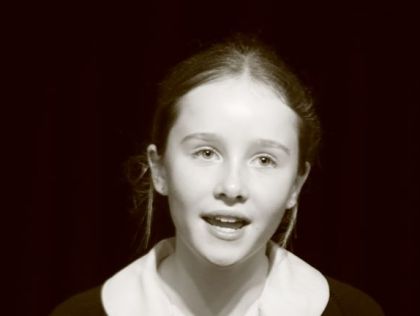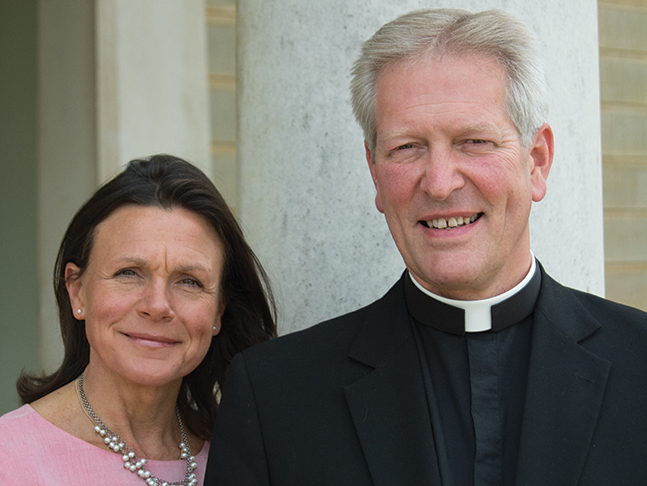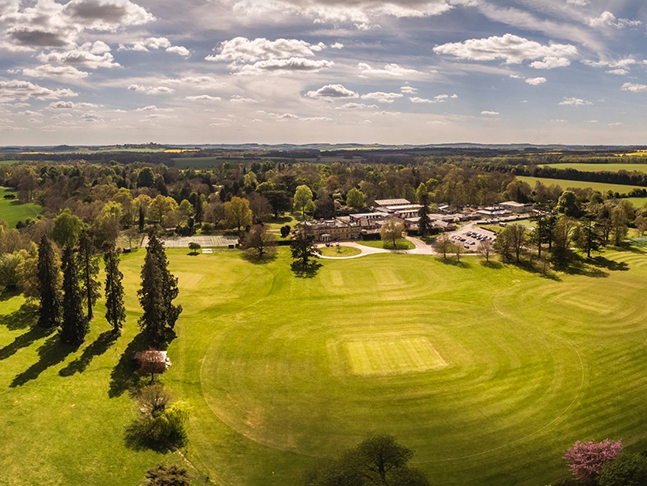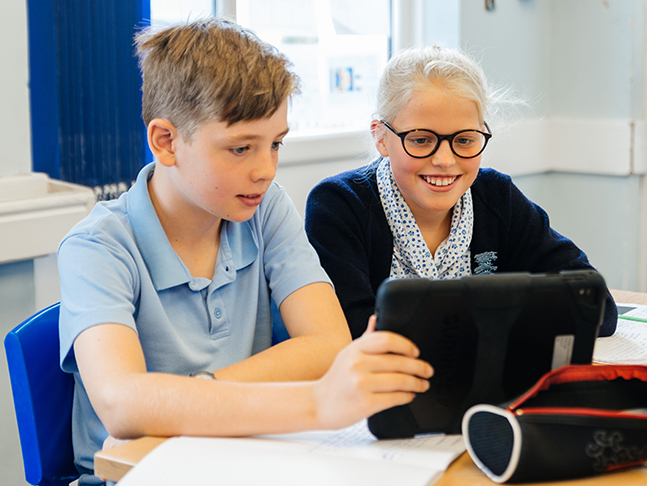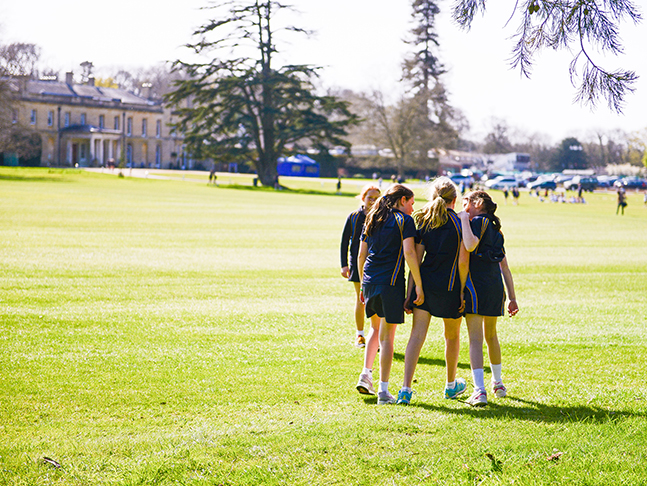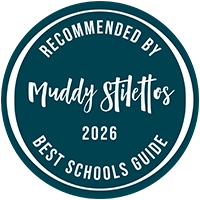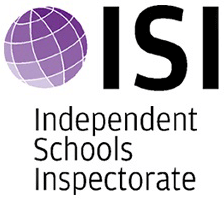Is Farleigh exclusively for Catholics?
Approximately 40% of our pupils are baptised Catholics, but Farleigh warmly welcomes children from other Churches and traditions, or none. Our aim is for the Catholic ethos to leave a very positive and life long impression on them and that they leave Farleigh realising the extent that faith contributes to contemporary life.
What is the school's admissions policy?
Farleigh is non-selective although preference is given to practising Catholics, boarders, siblings and children with family members who have previously attended the school.
Admission to Farleigh is at the discretion of the Headmaster. Families who enquire have an opportunity to meet with Fr Simon and tour the school with pupils. Children are registered upon receipt of a completed registration form and registration fee.
Pupils applying from outside the EC can only be offered a place if the visa requirements of the UK Visas and Immigration Agency are met. All overseas boarders must have a UK guardian.
How are prospective pupils assessed?
For all children considered for entry into the Kindergarten and Reception year groups, assessment is conducted informally while observing play in small groups. For the the Years 1 and 2 intake, children will be invited to attend an assessment carried out by a member of our Learning Support department.
Children seeking places in the Prep School (Year 3 and upwards) take an initial assessment with a member of the Learning Support team, prior to being offered a place. This friendly 'get to know the child' session requires no preparation. Places for pupils who require ongoing learning support are dependent on the current numbers receiving provision and are therefore subject to availability.
Prior to starting at Farleigh, new boarders are invited to stay overnight in order for them to get a feel for boarding at Farleigh and new day pupils are invited to a taster/moving up day in the term preceding entry.
What is the catchment area for Farleigh?
The majority of families live within a 15 mile radius of the school, which includes the villages surrounding Andover, Overton, Romsey, Salisbury and Winchester. Others come from slightly further afield, from Salisbury Plain or the villages surrounding Basingstoke, Devizes, Marlborough and Newbury. Approximately ten per cent of pupils are London based, Armed Forces or overseas boarders.
How does Chapel fit into the life of the school?
Fr Simon, as well as being Headmaster, is also the full-time Chaplain, celebrating Mass every Sunday for full boarders, families and members of the local community. Fr Simon and other members of staff lead school assemblies. Mass or Benediction for pupils in Years 3 to 8 alternates weekly with a thought-provoking presentation. Voluntary Mass is available on Monday, Wednesday and Friday mornings before the school day starts.
Catholic pupils are prepared for the Sacraments of Reconciliation (Confession), First Holy Communion and Confirmation.
Are pupils taught by subject specialists?
Specialist teaching is provided from a young age. French, Music, PE and Games from Year 1 and all academic subjects, including Latin, from Year 6.
What are the class sizes?
The average class size is 15 and the maximum is very rarely more than 17.
How will I know how my child is progressing?
A comprehensive system of progress grades, written reports and parents' evenings, together with easy access to teachers in person, by email or on the phone, ensures that parents are kept fully informed.
Pupils are tested annually in English, Maths, spelling, verbal and non-verbal reasoning, and this information helps parents make the right decision about their child's senior school. The school also test pupils using STEER assessment to monitor their wellbeing.
Is homework set?
Children in the Pre-Prep are given regular reading or spellings tasks. In the Prep School, all children have prep, which they can do at home or at school.
How do you cater for children who have academic ability and those who find learning more difficult?
In the Pre-Prep and in Year 3, pupils are taught in mixed ability classes, although frequently grouped according to ability, with different tasks set for each group.
In Years 4 and 5, there is a form group for pupils who can manage an accelerated curriculum, as well as three parallel classes. All subjects are taught as forms, apart from Maths, where there are four sets.
From Year 6, pupils are in mixed ability form groups and then placed in English sets, which determine the teaching groups for French, History, Geography, Art, Music, ICT, DT and PE. In the same way, Maths sets determine Science and Latin sets. Scholars are taught separately and experience a more advanced curriculum in Years 7 and 8.
What help is provided to those with specific learning needs?
An experienced and highly qualified team of staff provide specific intervention to all children who have an identified learning need. They also offer support to teachers and work in partnership with parents.
Support for effective learning is offered in reading, spelling, numeracy, memory skills, co-ordination skills and speech and language, and a more general support programme is offered to children as they prepare for Common Entrance. Much of the learning support provision is provided at no additional cost to parents.
What provision is offered to those with particular talents and abilities?
Through detailed monitoring of progress, all pupils receive appropriate provision and support for emerging talents and ability, be it academic, sporting or the arts. All children are encouraged and opportunities exist for specific pupils to take part in additional activities and competitions that will develop their talents.
To which senior schools does Farleigh typically feed?
Hand in hand with parents, we work tirelessly to ensure every child gains a place at the appropriate senior school of choice at Common Entrance, identifying 13+ scholarship opportunities, where appropriate. Destination schools include Ampleforth, Bryanston, Canford, Cheltenham, Dauntsey's, Downside, Eton, Godolphin, Harrow, Marlborough, Radley, Sherborne, Sherborne Girls, St Mary's Ascot, St Mary's Calne, St Swithun's and Winchester.
What IT provision is there?
As well as two IT suites of Apple Mac computers, the school has computers in the Library, Boarding Houses and the art and DT studios. All children, including those in Pre-Prep, enjoy a weekly computing lesson.
From Year 3, every pupil has a school email account and can access the internet, protected by comprehensive filter, monitoring and firewall systems. Internet safety is taught annually in lessons and in school assemblies. Special e-safety meetings are also arranged regularly for pupils in Years 7&8 and for all parents.
All classrooms are equipped with state-of the-art Promethean interactive whiteboards for enhancing teaching and learning.
Children in Years 6 to 8 are provided with their own iPad until they leave Farleigh, to help them with their studies and learning. All other year groups, including Pre-Prep have access to sets of iPads for enhancing education in classes where appropriate.
The school also has a set of sixteen Sphero robots, eight sets of Lego Spike robot kits, and a set of virtual reality headsets loaded with scenarios to support learning across all subjects.
What sports are offered?
The major sports for boys are football, rugby, cricket, tennis and athletics, and for girls, hockey, netball, cricket, tennis and athletics; lacrosse, archery, table tennis, golf, cross-country and more are also offered. Pupils enjoy regular fixtures against other local prep schools.
Within the PE curriculum, many physical skills are developed and encouraged: swimming, life-saving skills, dance, athletics, gymnastics and cross country. House sporting competitions from Year 3 onwards include all the major sports, cross country, tennis, athletics and swimming. Tennis is popular year round with tennis coaching on offer, either individually or in groups.
What are the opportunities for music and drama?
Music and drama play an important role in the life of the school and everyone takes part in a wide variety of related activities. Singing is a key element, not least during regular school assemblies. All children from the Pre-Prep to Year 5 sing in a choir, and from Year 5, all are able to join the Senior Choir or Chapel Choir.
Farleigh has its own music school, where individual music lessons in a wide range of instruments are taught by a large team of professional musicians. Children are encouraged to participate in one or more of over 20 ensembles rehearsing weekly, which cater for a range of abilities and musical tastes. Soloists and ensembles perform regularly in a busy schedule of concerts.
Drama is included in the curriculum in the Pre-Prep and through to Year 4 with major productions performed annually in Year 6 and Year 8. All children have the opportunity to participate in school productions, as well as in their form assemblies, poetry recitals and House public speaking. London Academy of Music and Dramatic Art (LAMDA) lessons are available to pupils from Year 3 wishing to have more formal training.
What are the opportunities for art and design?
Two spacious, light and well-equipped, purpose-built classrooms house the Art and Design & Technology departments. Overlooking the grounds, they offer an exceptional environment in which pupils can express their creativity in a wide range of media.
In addition, art and design are popular pursuits both at break times and as an additional activity, enabling pupils to develop their creativity outside of lessons, through painting, ceramics, set design for plays, woodwork etc.
What other extra-curricular activities are on offer?
Children can choose from a very wide range of curriculum-enriching activities which take place during the school day throughout the week - from the sporting (such as girls' football, lacrosse, boys' hockey, rugby sevens, swim squad, tennis) to the creative (pottery, art, design); cerebral (debating); community (Icknield School, foodbank, School Council); and practical (cooking, forest school). Activity sessions, including those after school in the Pre-Prep, vary according to staff expertise, but they are always lively clubs that allow the children to develop specific interests and hobbies.
What are the options for boarding?
We offer full, weekly and flexi-boarding for boys and girls from Year 3 (age 7). The number of beds available for flexi-boarding varies, as priority is given to full and weekly boarders.
The option of flexi-boarding ceases from the summer term of Year 7 when the majority of pupils convert to weekly or full boarding in preparation for boarding at senior school. If the day option is preferred in Year 7, children are still welcome to weekly board at any stage during Year 8, space permitting.
As well as half-terms, all boarders go out at exeat weekends, of which there are generally four in the longer autumn term, and two in both the spring and summer terms.
On Saturdays, after lessons and much anticipated fixtures against local prep schools in the afternoon, weekend boarding starts with opportunities for the children to relax and unwind in their dorms or common rooms, play outside, watch TV or listen to music. They may also spend time with the House Parents, baking or playing board games etc. and, after supper, participate in activities such as a quiz or a sketch show.
On Sunday, after a late breakfast and Mass, the children relax and enjoy the facilities and grounds. After lunch, there is music practice and some homework followed by an organised activity run by staff within school, such as 'Bake Off', making go-karts or kites, scuba diving in the pool etc. or a fun trip out to the Aquadrome, cinema, ten-pin bowling or shopping. The children appreciate the relaxed family atmosphere of the weekends, with the opportunity to build dens in the woods, cycle, skateboard, play tennis outside or play pool, air hockey, table tennis, darts, table football or dance in the studio.
The twenty five staff living on site contribute to the on-site community feel, with Gaps and Graduate Assistants also supporting the House Parents and Assistant House Parents in looking after boarders.
How often can we see our boarding son or daughter during term time?
Parents are welcome to visit as often as they choose, support their children taking part in concerts etc., come to matches on Wednesdays and Saturdays, and, if desired, take their children out for tea afterwards. Many parents also attend Mass in the school Chapel on Sunday morning.
